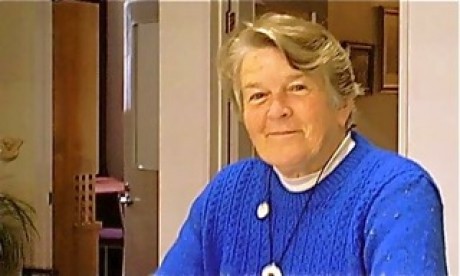On Sunday, October 7, 2012 I went to an ecumenical sharing service in Wellington in honour of Hildegard of Bingen being made the 35th Doctor of the Catholic Church.
At approximately the same time the Opening Mass for the Synod on the New Evangelisation was being celebrated in St. Peter’s in Rome and the doctorates on Hildegard and John of Avila were being promulgated.
Apart from being only the 4th woman in the history of the church to receive this honour Hildegard was an extraordinary woman. Her life spanned much of the 12th century being born in Germany in 1098 and dying in 1179. She wrote extensively, composed music which subverted the principles of liturgical music of the time, was a philosopher, ecologist, mystic, Benedictine abbess and visionary.
She wrote theological, botanical and medicinal texts, as well as letters to people such as Bernard of Clairvaux, founder of the reformist Cistercian monastic order. He sent the text of some of her work to Pope Eugenius 111 who endorsed her works and visions, giving her approval to document her visions as revelations from the Holy Spirit.
Her world at that time was in some ways not unlike our own time. There was an atmosphere of fear. New ideas were condemned as heresy. What helped Hildegard navigate through this minefield?
She was a prophet in that she lived immediately before Francis of Assisi, Dominic, Thomas Aquinas and the great Mechtilde of Magdeburg. Perhaps it is providential that she has remained hidden until now so that her impact on our time may be more beneficial, in releasing the spring of new discoveries into exploring God in the Gospel as revealed by Jesus, the Word.
Amazingly at sixty she did the unthinkable for her time. She travelled to cathedrals, churches, abbeys and monasteries preaching. This was at a time when only men preached and women were safely enclosed within monastic walls. What an inspiration for us today!
A Doctor of the Church who can speak the Word of God to all who listen. Catherine Hannan.
- Sister Catherine Hannan is a Home of Compassion sister.
